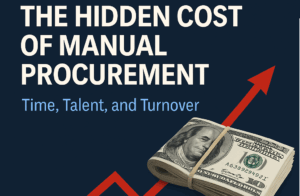In the intricate web of modern supply chains, the success of an organization is intricately tied to the strength of its supplier relationships. The traditional approach to supplier relationship management (SRM) is evolving, thanks to the proliferation of data and advanced analytics. Organizations are now leveraging data-driven strategies to optimize supplier relationships, enhance collaboration, and drive mutual value creation. This article explores the transformative power of data-driven supplier relationship management, highlighting how organizations can harness insights to make informed decisions, improve efficiency, and foster long-lasting partnerships.
The Evolution of Supplier Relationship Management
Traditionally, SRM focused on transactional interactions, negotiations, and cost reduction. However, the digital age has brought forth an era of interconnectedness and data abundance, reshaping how organizations approach SRM.
Leveraging Data for Informed Decision-Making
- Supplier Performance Metrics: Collect and analyze data on key performance metrics, such as delivery times, quality, and lead times. This data-driven approach enables organizations to objectively assess supplier performance and identify areas for improvement.
- Predictive Analytics: Utilize predictive analytics to anticipate potential disruptions, enabling proactive measures to mitigate risks and maintain supply chain continuity.
- Demand Forecasting: Share demand forecasts with suppliers, allowing them to align their production and inventory management strategies with actual market needs.
- Cost Analysis: Analyze cost data to identify cost-saving opportunities and negotiate better terms with suppliers.
Enhancing Collaboration and Communication
- Real-Time Communication: Leverage data-sharing platforms to facilitate real-time communication and collaboration between suppliers and internal teams.
- Collaborative Planning: Use data-driven insights to collaboratively plan production, inventory, and distribution strategies with suppliers, ensuring alignment with market demands.
- Co-Innovation: Co-create innovative solutions with suppliers by analyzing market trends and customer insights together.
Driving Value Creation
- Supplier Segmentation: Segment suppliers based on data-driven criteria to allocate resources and efforts effectively. High-value suppliers can receive more focused attention.
- Total Cost of Ownership (TCO): Incorporate data-driven TCO analysis to evaluate the complete costs associated with a supplier, including hidden costs, to make well-informed sourcing decisions.
- Long-Term Relationship Building: Use data to identify opportunities for long-term partnerships, creating a win-win situation where both parties can invest in mutual growth.
Data Privacy and Ethical Considerations
While data-driven SRM offers significant benefits, organizations must prioritize data privacy, security, and ethical considerations. Ensure that data sharing complies with regulations and that sensitive information is protected.
Data-driven supplier relationship management is reshaping the way organizations collaborate with suppliers, optimizing operations, and driving value creation. By harnessing data insights, organizations can make informed decisions, enhance communication, and build lasting partnerships that contribute to the overall success of the supply chain. As the digital era continues to unfold, data-driven SRM will remain a vital strategy for organizations seeking to stay competitive, agile, and responsive in an ever-evolving business landscape.
The Perfect Planner Team is here if you have any questions about Supplier Relationship Management Strategies, and we offer a free consultation service. If you would like to connect with us on this article or any other topic, please message us on LinkedIn, shoot us an email at info@perfectplanner.io, visit our website at www.perfectplanner.io, or give us a call at 423.458.2979.
Author: Thomas Beil
Publication Date: June 20, 2024
© Copyright 2024 Perfect Planner LLC. All rights reserved.






